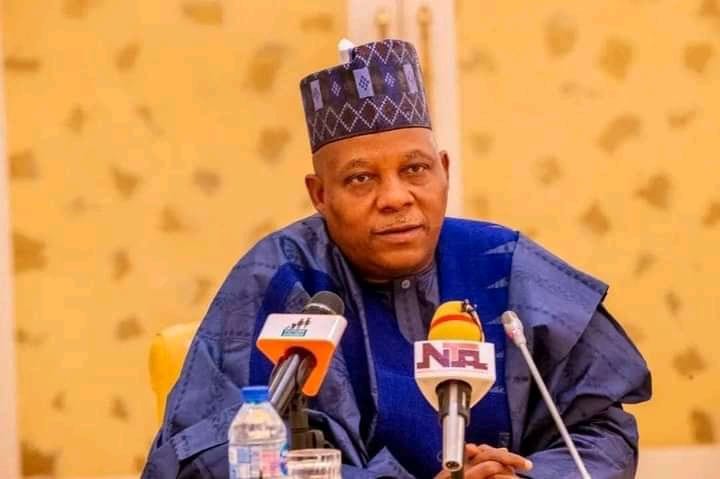Headlines
Shettima, Adelabu, and Abiodun emphasize the need to diversify the nation’s economy

The governor of Ogun State, Mr. Dapo Abiodun, Vice President Kashim Shettima, and Minister of Power, Chief Adebayo Adelabu, have revived demands for the nation to actively diversify its economy away from the oil industry and towards non-oil sectors in order to realise its enormous potential.
They protested that the country was still classified as poor as it was still heavily dependent on oil, pointing out that the talk about the need for economic diversification was more important than any actual actions.
In attendance at the University of Ibadan on Saturday for the 74th posthumous birthday and roundtable discussion of Senator Abiola Ajimobi, they declared that in order for Nigeria to achieve sustainable development, it must move away from its reliance on fossil fuels and towards solid minerals, industrialization, youth empowerment, and significant investments in infrastructure, education, tourism, social welfare, health, power, agriculture, and the digital economy.
Leading the charge, Shettima was represented by Mr. Bashir Maidugu, Senior Special Assistant, Legal and Compliance Matters, who stated that the country needed to invest in tourism, leverage its youthful population, and address its infrastructural deficit.
He lamented that the nation’s issues were self-inflicted and urged both leaders and followers to fulfil their responsibilities in order to create a better society.
He emphasised that the current government must make sure it draws in private investment, pointing out that the private sector has a significant role to play in helping the country realise its potential. He noted that the country had the capacity to dominate Africa.
Speaking as the keynote speaker, Adelabu bemoaned the fact that the much-discussed economic diversification has only occurred in theory because the country’s primary source of income continues to come from petroleum products.
According to him, the only ways the country can achieve sustainable growth are by industrialising, investing in industries, encouraging domestic production, developing its human capital, and making investments in health and education.
Noting that young make up roughly 70% of the population, he stated that in addition to a concentration on technical and vocational education, teenagers need to be equipped with the knowledge and skills necessary for the technology/digital age.
In his capacity as minister of power, Adelabu pledged to strengthen the country’s system beyond 4000 megawatts, stating that major improvements in the country’s electricity supply will result from its short-, medium-, and long-term strategies.
As the country’s underdevelopment and backwardness, he also chastised both leadership and followership.
On the one hand, he claimed that followership has not been able to hold the leadership responsible, choosing instead to suffer in silence; yet, the leadership has, up until this point, mainly lacked inspiration and direction.
Governor Dapo Abiodun, on his part, asserted that the potential are limitless if the country can access solid minerals, manufacturing, and technology.
He demanded the creation of a fully digital infrastructure economy and the removal of solid minerals from the exclusive list of subnational jurisdiction.
He emphasised the need of public engagement while urging the leadership to manage resources responsibly.
Declaring that the country was on the right track with President Bola Tinubu’s Renewed Hope agenda, he added that lifelong investments and sacrifices from everyone were required on the way to become a developed nation.
In line with the governor of Ogun, Mr Bayo Lawal, the deputy governor of Oyo State and representative of Governor Seyi Makinde, requested that solid minerals be transferred from the exclusive to the concurrent list.
Speaking at a roundtable on the theme of “Re-Engineering Nigeria for Sustainable Development, Options, Costs and Prospects,” Professor Olawale Albert said that the root of all of the country’s issues is a lack of political will.
He claimed that despite claims that Nigeria’s issues stem from the 1999 constitution, efforts to amend it and create a new one have not yet begun, demonstrating a lack of political will.
Albert also questioned why the 2014 report from the constitutional conference, which stated that in order for the country to reach its full potential, its leaders needed to unite, concentrate on taking tangible steps, and create a unified agenda, had not been put into effect.
Albert, who expressed admiration for Tinubu’s concepts of a Blue Economy, Tourism, and Creative Economy, asked Nigerians to exercise patience with their government.
During the discussion of Albert’s paper presentation, Professor Adeola Adenikinju emphasised the significance of a collaborative effort between policy formulation and academic research.
According to Professor Tunji Olaopa, if the elites minimise their personal interests, the country will advance; leaders need to set a good example for those who follow them.
The conversation was conducted by Professor Tajudeen Akanji, who emphasised the importance of setting an example for others to follow and the necessity for cooperation between academics and decision-makers. She also said that the leadership needed to effectively explain its activities and policies.
Professors Duro Oni, Sola Olorunyomi, Temitope Alonge, Prelate Ola Makinde, Apostle Sunday Popoola, Mr. Leye Oyebade, Mr. Temitope Alonge, and Professor Muhammad Fagge were among others who contributed as well.
The purpose of the roundtable, according to President, Senator Abiola Ajimobi Foundation, Mrs. Florence Ajimobi, was to provide both supporters and detractors of President Bola Tinubu’s Renewed Hope agenda a chance to assess the nation’s current course.
